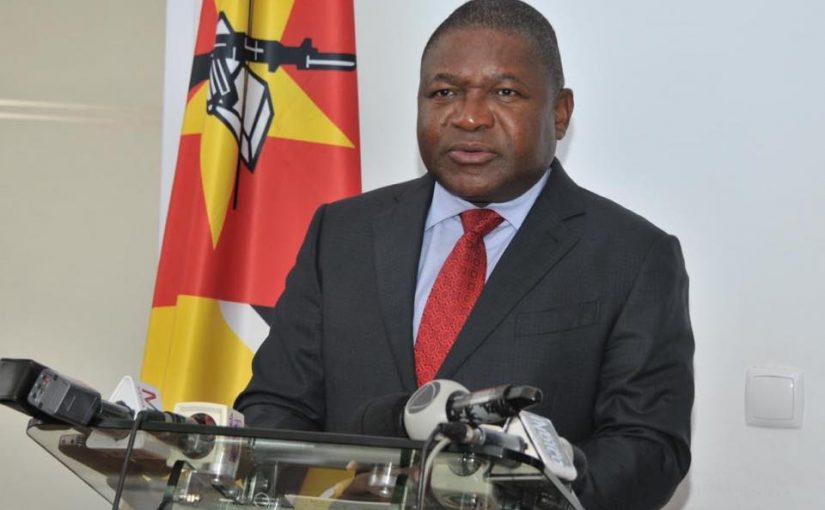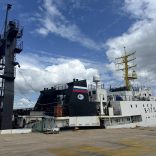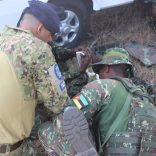Mozambique: Over 500 terrorist attacks recorded by end of august – OCHA | AIM report
Mineral resources belong to all Mozambicans – Nyusi – AIM Report

In file CoM
Mozambican President Filipe Nyusi declared on Wednesday that the country’s mineral resources belong to the entire Mozambican people, and their benefits must be shared between the citizens of the current generation, and those of future generations.
Speaking in Maputo at the opening of a high level seminar on the theme “Preparing Mozambique for the era of natural gas”, organised by the Bank of Mozambique and the International Monetary Fund (IMF), Nyusi said that, apart from the debate on the creation of a sovereign wealth fund, it was also an opportune moment to discuss the transformation the economy needs in order to grow in a robust, sustainable and inclusive manner.
He faced the question of the “resource curse”, arguing that this occurs “when the income generated by the exploitation of resources are illicitly appropriated or dilapidated, when this revenue benefits just a group of companies, and does not contribute to the diversification of the economy”.
When they are not well used, Nyusi continued, the resources can generate greater social inequalities and regional asymmetries, resulting in increased poverty, and endangering social and economic equilibrium.
The research done so far indicates that Mozambique has reserves of 277 trillion cubic feet of natural gas, which puts it potentially among the world’s largest producers. This could generate revenue of around 49.4 billion US dollars, four times the current Gross Domestic Product, during the useful life of the gas projects.
Nyusi stressed that Mozambique does not want to be on the list of countries which, despite exploiting substantial mineral resources, remain with high levels of poverty and inequality of income. In such countries, mineral resources can become a source of conflict, and can lead governments to neglect other sectors of the economy.
The President warned participants to recognise that the resources will not always be in the subsoil. They are finite, and as they are exploited, so they become exhausted. Furthermore, although the country has large confirmed reserves of minerals, the revenue they earn will always depend on the prices practiced on the world market, which are beyond Mozambique’s control.
He added that the country has an enormous deficit in infrastructures, and its capacity to receive a large amount of money all at once is also limited.
Nyusi argued that, with a well structured savings mechanism, and with modern standards of management and governance, the country could transform the gains from the exploitation of non-renewable resources into the generation of renewable resources that will perpetually benefit present and future generations.
The reflections on creating such a sovereign wealth fund in Mozambique should converge on how to protect and diversify the economy. In designing the fund, the President added, positive models should be studied, but also the negative practices in similar institutions where financial resources were drained for the illicit enrichment of their managers.
The sovereign fund, Nyusi continued, should be financially independent, and operate with transparency and predictability. “We also think it crucial to define a fixed percentage of the revenue that will be channelled annually to the State Budget, to allow the necessary investments to reduce the current deficit in infrastructures and to improve living conditions”.
He called for caution, warning that the injection of large amounts of financial resources all at once could be damaging to the economy, and might prevent careful reflection on the most appropriate investments.
The key objectives, Nyusi stressed, were to reduce the number of Mozambicans living below the poverty line (currently estimated at 46.1 per cent of the total population, and to lessen the gap between the rich and the poor.













Leave a Reply
Be the First to Comment!
You must be logged in to post a comment.
You must be logged in to post a comment.